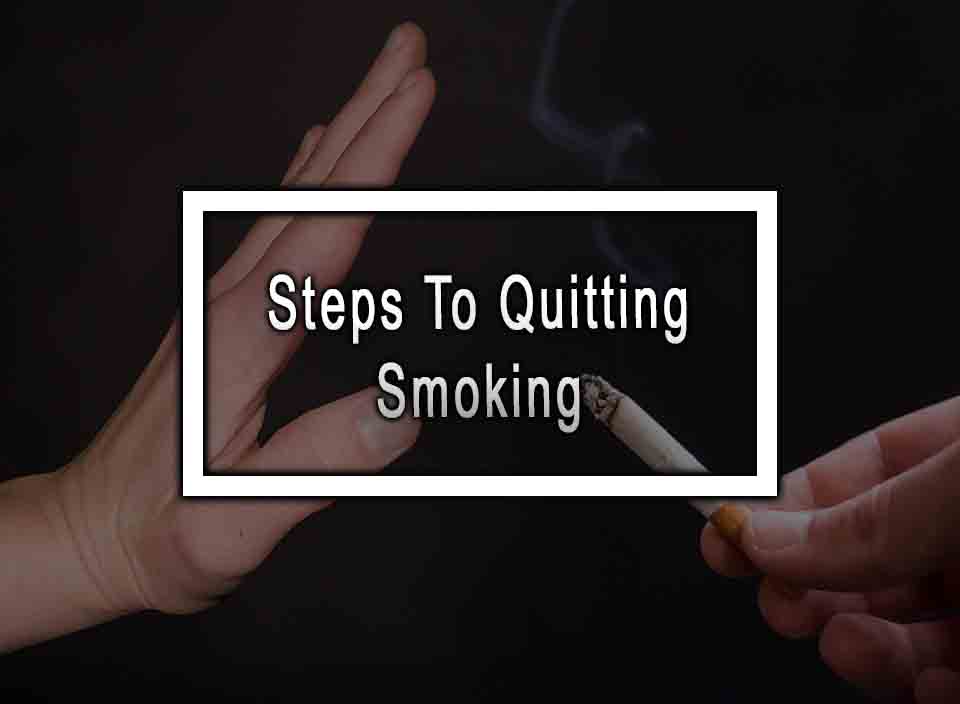Table of Contents
ToggleHere Are Some Steps To Quitting Smoking
Quitting smoking is perhaps one of the most difficult challenges that individuals will ever face. It requires a significant amount of commitment, dedication, and willpower to overcome this addiction. Nicotine, the primary active ingredient in cigarettes, is highly addictive, making it challenging for individuals to quit smoking. Many individuals find it challenging to quit smoking even though they are aware of the dangers of smoking. Tobacco use is detrimental to an individual’s health, causing various medical issues, including cancer, heart diseases, and lung diseases, to name a few. In this article, we will discuss the steps to quitting smoking.
Understand the Reasons for Quitting Smoking
The first step to quitting smoking is understanding why you want to quit. Several reasons may motivate a smoker to quit, including but not limited to health concerns, financial reasons, or for the benefit of their loved ones. Identifying the reasons for quitting smoking motivates individuals to stay committed to the process of quitting.
Set a Quit Date
Once you have identified the reasons for quitting, the next step is to set a quit date. This is an essential step as it allows for adequate preparation for what will inevitably be a challenging process. Mark the date on your calendar, and ensure that you stick with it.
Plan for Withdrawal Symptoms
Withdrawal symptoms of quitting smoking are challenging to deal with and may include irritability, anxiety, depression, insomnia, and increased appetite. Planning for these symptoms can help mitigate their impact on an individual’s life. Medical professionals may be able to prescribe medication or provide quitting aids, which can alleviate withdrawal symptoms.
Address Triggers
Triggers are the things that cause an individual to smoke. Common triggers include stress, alcohol consumption, social engagements, and environmental factors. Addressing these triggers can help reduce the urge to smoke. For example, learning to deal with stress without the need for a cigarette can greatly reduce the impact that stress has on an individual’s life.
Get Support
Individuals that have support during the quitting process have higher success rates. Support can come from family members, friends, and medical professionals. Joining support groups or seeking counseling can be beneficial. Medical professionals may be able to prescribe quitting aids or provide advice on how to deal with withdrawal symptoms.
Develop a Plan
Developing a plan that includes a quitting strategy, identifying engaging and healthy activities, and monitoring progress are essential components of successfully quitting smoking. A quitting strategy may involve gradually reducing the number of cigarettes smoked or going cold turkey. Identifying healthy activities, such as exercising or reading, which individuals can engage in when cravings hit, can distract from the urge to smoke cigarettes.
Reward Progress
Quitting smoking is an enormous accomplishment, and individuals should reward themselves as they progress toward their goals. This can aid in motivation and help prevent relapse. Rewards may include engaging in a favorite hobby, purchasing something special for oneself, or taking a well-deserved vacation.
Conclusion
Quitting smoking presents a daunting challenge for smokers who are addicted to nicotine. Nicotine is highly addictive, making it difficult for smokers to quit smoking. However, with commitment, dedication, and willpower, quitting smoking is possible. The steps to quitting smoking include understanding the reasons for quitting, setting a quit date, planning for withdrawal symptoms, addressing triggers, getting support, developing a plan, and rewarding progress. Quitting smoking is an accomplishment that has immense benefits for an individual’s health, finances, and overall well-being. By following these steps, individuals can overcome their addiction to nicotine and live a healthier and happier life.
Quitting Smoking FAQ
Here are the most common questions about quitting smoking.
What are the benefits of quitting smoking?
The benefits of quitting smoking are numerous, including improved lung function, decreased risk of heart disease and stroke, and improved overall health. Quitting smoking can also lead to better energy levels, improved mood, and better physical appearance.
How do I quit smoking?
There are many ways to quit smoking, including nicotine replacement therapy, medication, counseling, and support groups. It is essential to find the approach that works best for you.
What is nicotine replacement therapy?
Nicotine replacement therapy involves using products that deliver nicotine to help reduce cravings and relieve withdrawal symptoms during the quit process. These products include nicotine patches, gum, and lozenges.
Are there medications to help quit smoking?
Yes, several medications can help quit smoking, including bupropion and varenicline. These medications work by reducing nicotine cravings and withdrawal symptoms and are available with a prescription.
Is quitting smoking difficult?
Quitting smoking can be challenging, and everyone’s experience is unique. Withdrawal symptoms can be challenging, but support and preparation can help you overcome the challenges and successfully quit smoking.
Can I quit smoking on my own?
You can quit smoking on your own, but it can be challenging. It is essential to seek out support and resources to increase your chances of success. Counseling, support groups, and medication can all improve your chances of quitting smoking for good.
How long does it take to quit smoking for good?
Quitting smoking is a lifelong process, and the length of time it takes to quit for good varies from person to person. However, most health benefits start to occur within weeks to months after quitting smoking.
What can I do to avoid relapse?
To avoid relapse, it is essential to have a plan in place and to identify triggers that may tempt you to smoke again. Continuing to receive counseling or support and finding new ways to manage stress can also help you avoid relapse.
More like this: What Is Body Mass Index












